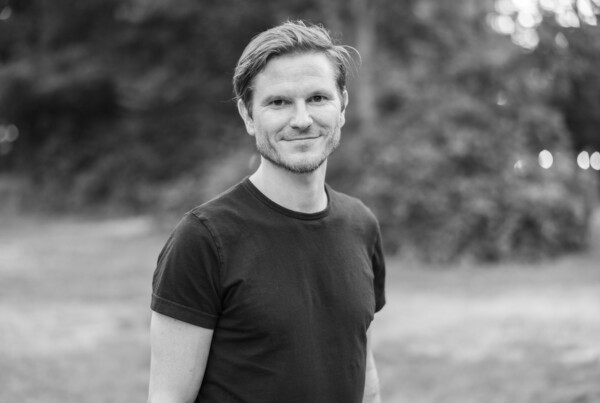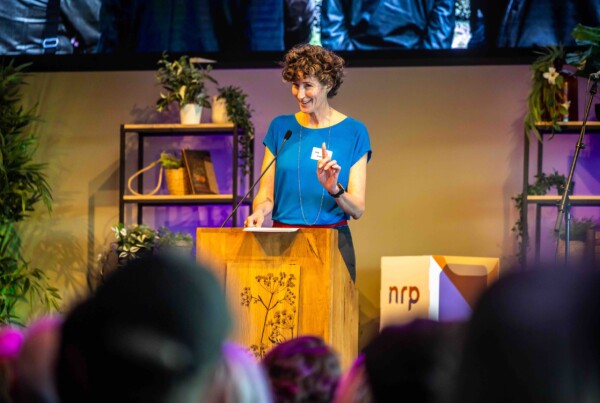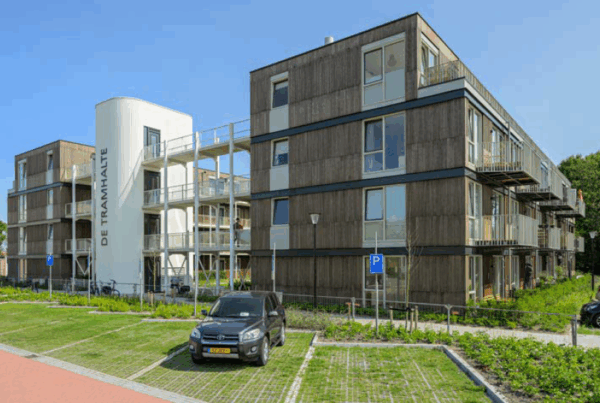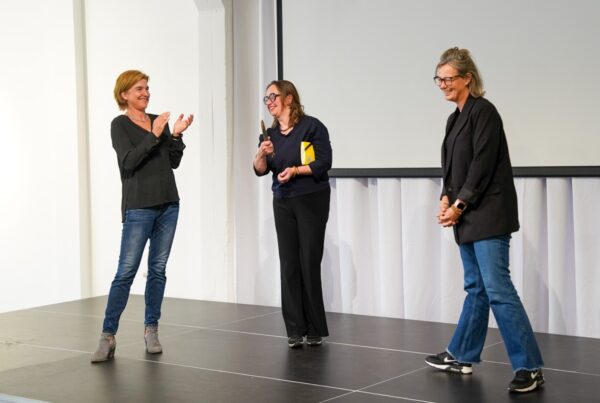Designers need to adopt a “possibilist mindset” to make meaningful changes to face climate change. Sarah Ichioka, urbanist, strategist and co-writer of the book Flourish: Design Paradigms for Our Planetary Emergency, will start off the make NATURE happen night at 23th June. She will talk about how our future architecture can/must draw inspiration from traditional and indigenous philosophies and practices that see humans as fully integrated within a larger web of life. She will also shine a light on some contemporary indigenous communities and designers and the important perspectives they bring to this urgent topic.
Help nature flourish
Research, theory and practice of nature inclusive building and design is the key subject of the night. Nature inclusive design is to design with, and for nature. It goes further than integrating only a couple of square meters of green on a roof or in a façade. Said designs are meant to create physical spaces that protect its biodiversity and strengthens the eco systems. Green surroundings become an integral part of a building, to help nature flourish again. BNA sees a special role laid out for architects, and aims to inspire its members with this inspiration night at the WUR Wageningen.
“A possibilist revolution would unlock designers’ power to address our planetary emergency”
How do you see the role and added value of the architect in nature inclusive design?
Fundamentally, architects can begin by understanding how the site would have functioned as a living system pre-development, and use this as a baseline for the ecological performance of whatever new structure or system they are designing. There are many opportunities for architects to welcome other species through the careful design of our buildings and public spaces. These include interventions at the ground plane, of course, but also in the design of facades and rooftops. Architects can design with attention to the conditions of microclimates, and a sensitivity to how spaces are lit, noise levels, ventilation etc. will affect how different life forms inhabit them.
Where do you see the tipping points to bring about change?
A regenerative approach to design and development puts care for life at the centre of all of our decisions. In our book Flourish: Design Paradigms for Our Planetary Emergency, co-author Michael Pawlyn and I make the case for change at the level of mindset. Inspired by the great systems thinker Donella Meadows, we believe it is important to understand—and transform—the paradigms within which we operate as professionals (and citizens). To share just two examples: we can strive to take a longer view on the timeframe for our projects, and we can shift our business cultures from a mindset of competition towards one of collaboration.
About Sarah Ichioka
Sarah Mineko Ichioka is a strategist, urbanist, curator and writer. She is Founding Director of Desire Lines, a consultancy for environmental, cultural, and social-impact organizations and initiatives. In previous roles, she has explored the intersections of cities, society and ecology within leading international institutions of culture, policy and research. She is co-author of Flourish: Design Paradigms for Our Planetary Emergency (2021) with Michael Pawlyn. Ichioka has been recognized as a World Cities Summit Young Leader, one of the Global Public Interest Design 100, and a British Council / Clore Duffield Cultural Leadership International Fellow. She holds degrees from Yale and the LSE.



